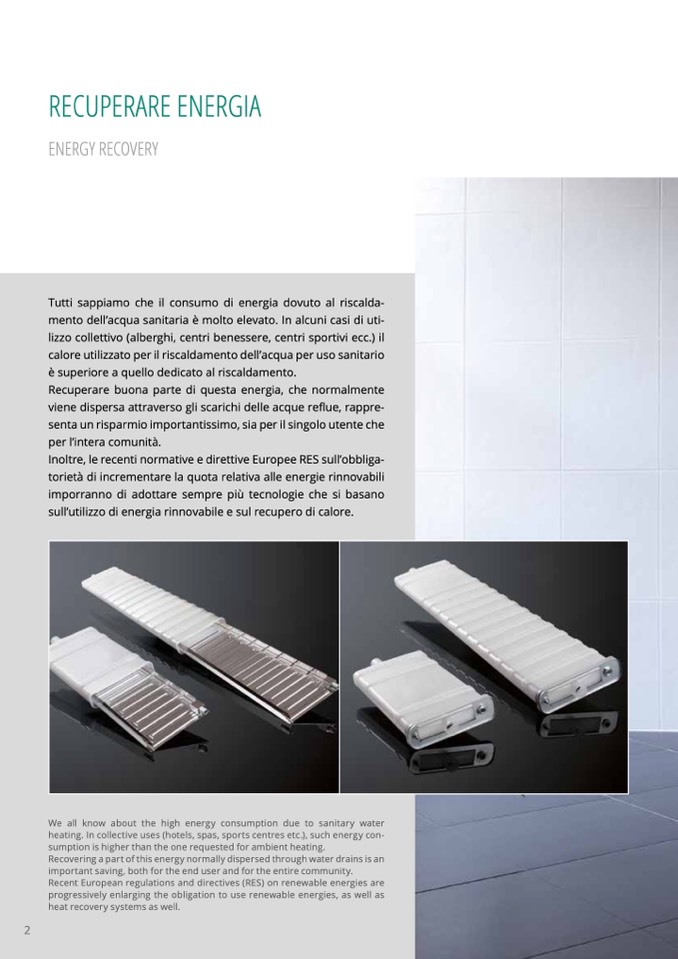
RECUPERARE ENERGIA
ENERGY RECOVERY
Tutti sappiamo che il consumo di energia dovuto al riscalda-
mento dell’acqua sanitaria è molto elevato. In alcuni casi di uti-
lizzo collettivo (alberghi, centri benessere, centri sportivi ecc.) il
calore utilizzato per il riscaldamento dell’acqua per uso sanitario
è superiore a quello dedicato al riscaldamento.
Recuperare buona parte di questa energia, che normalmente
viene dispersa attraverso gli scarichi delle acque reflue, rappre-
senta un risparmio importantissimo, sia per il singolo utente che
per l’intera comunità.
Inoltre, le recenti normative e direttive Europee RES sull’obbliga-
torietà di incrementare la quota relativa alle energie rinnovabili
imporranno di adottare sempre più tecnologie che si basano
sull’utilizzo di energia rinnovabile e sul recupero di calore.
We all know about the high energy consumption due to sanitary water
heating. In collective uses (hotels, spas, sports centres etc.), such energy con-
sumption is higher than the one requested for ambient heating.
Recovering a part of this energy normally dispersed through water drains is an
important saving, both for the end user and for the entire community.
Recent European regulations and directives (RES) on renewable energies are
progressively enlarging the obligation to use renewable energies, as well as
heat recovery systems as well.
2

